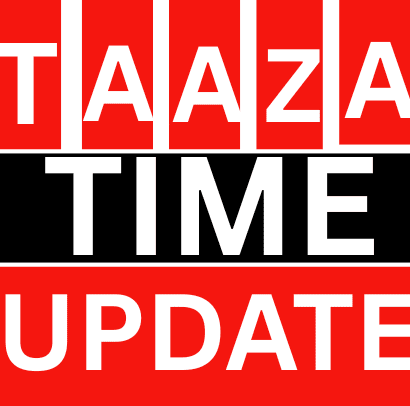At Taaza Time Update, we are deeply committed to publishing accurate, verified, and responsible content. Our credibility and the trust of our readers are built on the foundation of factual integrity. Below is an outline of our fact-checking principles and practices:
Commitment to Accuracy
- a) Taaza Time Update strives to ensure the accuracy of every piece of content we publish. We approach all claims with a healthy degree of skepticism, question assumptions, and critically evaluate conventional beliefs.
- b) Our commitment to “due accuracy” means information should be appropriately accurate for the context and nature of the content. If there are any constraints—such as incomplete data—we disclose them clearly to manage expectations.
- c) We aim to ensure all published material is well-researched, sourced from credible references, and corroborated by evidence. We are transparent about what we do not know and avoid speculation unless clearly labeled as such.
Editorial Standards
- d) Our writers do not engage in plagiarism or deliberately misrepresent facts, visuals, or context. Originality, honesty, and context are at the core of our reporting.
- e) We verify claims and allegations—especially those made by public figures or sources with potential biases—through independent and trustworthy sources. If verification is not possible, such claims are attributed accordingly and clearly identified as unverified.
- f) We stand by our content as accurate at the time of publication. If any published information is later found to be incorrect, we revise it promptly. We are committed to not misleading our audience and acknowledge and correct serious factual errors openly and quickly.
- g) Readers are encouraged to report inaccuracies using the “Suggest a Correction” feature found at the bottom of each article. We value public input as part of our ongoing effort to ensure reliability.
Fact-Checking Workflow
Our editorial process includes multiple levels of review. Every article is fact-checked by the writer and reviewed by one or more editors. The level of editorial oversight is based on factors such as the complexity of the content, its sensitivity, and deadlines. This multi-tiered approach ensures that our stories meet high editorial and factual standards.
Correction Policy
While we take great care to ensure accuracy, we acknowledge that occasional mistakes may occur. When errors are identified, Taaza Time Update takes full responsibility and corrects them transparently.
How Readers Can Request a Correction
If you notice an error, please contact the Editor-in-Chief directly via:
Email: taazatimeupdate@gmail.com
Subject Line: Correction Needed
Note: A correction request must be sent to the Editor-in-Chief directly to be considered official. Requests sent to other staff members may not be addressed promptly.
Please include:
- The incorrect information
- The article title or publication date
- Where you saw the error (website, social media, etc.)
- Your name and a contact method (email or phone)
- The correct information and a source, if available (e.g., official meeting minutes or documents)
You will receive a follow-up from our editorial team. Please note: submitting a correction request guarantees the issue will be reviewed, not necessarily that a correction will be made.
Correction Procedures
If an error is confirmed, we take the following steps:
- Website: The article will be updated and an editor’s note will be added at the bottom, indicating the nature of the correction and the date it was made.
- Social Media: If the article was shared on platforms like Facebook, Twitter, etc., a new post will be published linking to the corrected article and acknowledging the correction.
Reader Notification: Once the correction has been made, the Editor-in-Chief will notify the reader who submitted the correction with details of the steps taken.
